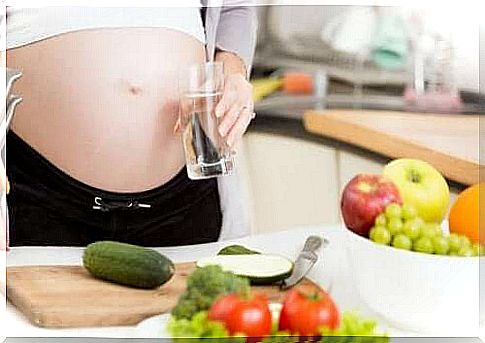Nutritional Supplements For Pregnant Women

If you are thinking about having a baby and are concerned about your diet during pregnancy, in this article you will find a review of nutritional supplements for pregnant women.
At such an important stage as pregnancy, nutrition plays a key role. From conception, a woman’s body undergoes a multitude of physiological changes in order to shelter the future baby and provide an environment with everything necessary for its proper development.
It is necessary to emphasize the importance of adjusting and adapting these nutrients to the needs of this phase and to the individualities of each woman, since the lack or excess of any of them is something that has been linked to pre-eclampsia, congenital anomalies and miscarriages, among other consequences.
Since sometimes the diet is not enough to cover the nutritional recommendations, it is necessary to resort to nutritional supplementation. However, this should always be done under the supervision of a professional.
Next, let’s look at the most important micronutrients during pregnancy:
Folic Acid or Vitamin B9
The lack of folic acid during embryonic development has been linked to neural tube defects (NTD), congenital heart disease and spontaneous abortions, among other complications.
If pregnancy is planned, supplementation should begin one month before conception and continue through the end of the first trimester.

The recommended dose for non-risk pregnancies is 0.4 milligrams per day, which is increased to 5 milligrams per day in high-risk pregnancies.
We must consider that folic acid does not accumulate in the body. Therefore, if we want to benefit from its protective effect, we must consume it every day.
In addition, regardless of supplementation, it is recommended that all pregnant women consume foods rich in folic acid, such as:
- Green leafy vegetables (spinach and chard).
- Legumes.
- Fruits.
- Yeasts.
- Oilseeds.
Considering that folic acid is very sensitive to cooking, and that large losses can occur, raw fruits and vegetables are recommended.
Nutritional Supplements: Iodine
It is an essential micronutrient in the synthesis of thyroid hormones, necessary for good mental and brain development, as well as for bone, pulmonary and cardiac maturation throughout fetal and neonatal life.
Worldwide, iodine deficiency is the leading preventable cause of fetal and infant brain damage, as well as delay in psychomotor development in young children.
During pregnancy, the amount needed increases by 20%. Therefore, it is recommended to supplement 200 micrograms per day during pregnancy, in addition to the usual consumption of iodized salt.
Iron
Iron is part of hemoglobin and therefore is essential for oxygen transport, among other functions.
During pregnancy, hematological changes occur that, without enough iron, can lead to the most common disease in pregnant women, iron deficiency anemia.
This iron deficiency has been associated with prematurity, reduced physical and neurological development of newborns, infectious diseases and an increase in perinatal mortality.
Therefore, to avoid depleting the mother’s iron stores, supplementation should be considered as a nutritional prevention measure from the second trimester onwards. However, the recommendation must be individualized, since supplementation in women with adequate iron stores can carry risks.
Calcium, another nutritional supplement
It is the most abundant element in the body. Its deficiency has been associated with prematurity, poor bone mineralization and pre-eclampsia.
Although during pregnancy the amount needed is greater, absorption by the mother’s body increases by 40%. For this reason, supplementation is only recommended for pregnant women with insufficient calcium intake.

Multivitamins
As for the use of multivitamin supplements, they are not currently recommended. There is no evidence to suggest a greater benefit compared to individual supplementation. In addition, some nutrients interact with each other and can interfere with absorption.
Other nutritional supplements
It is worth noting that there are other micronutrients (vitamins A, D, C, E…) whose required amounts also increase during pregnancy. But, as a general rule, its supplementation is not recommended, as we can easily meet these requirements through food.
Finally, it is noteworthy that, in excess, certain vitamins – such as A and D – have toxic effects for both the mother and the baby, in such a way that they should never be supplemented without the supervision of a specialist.









